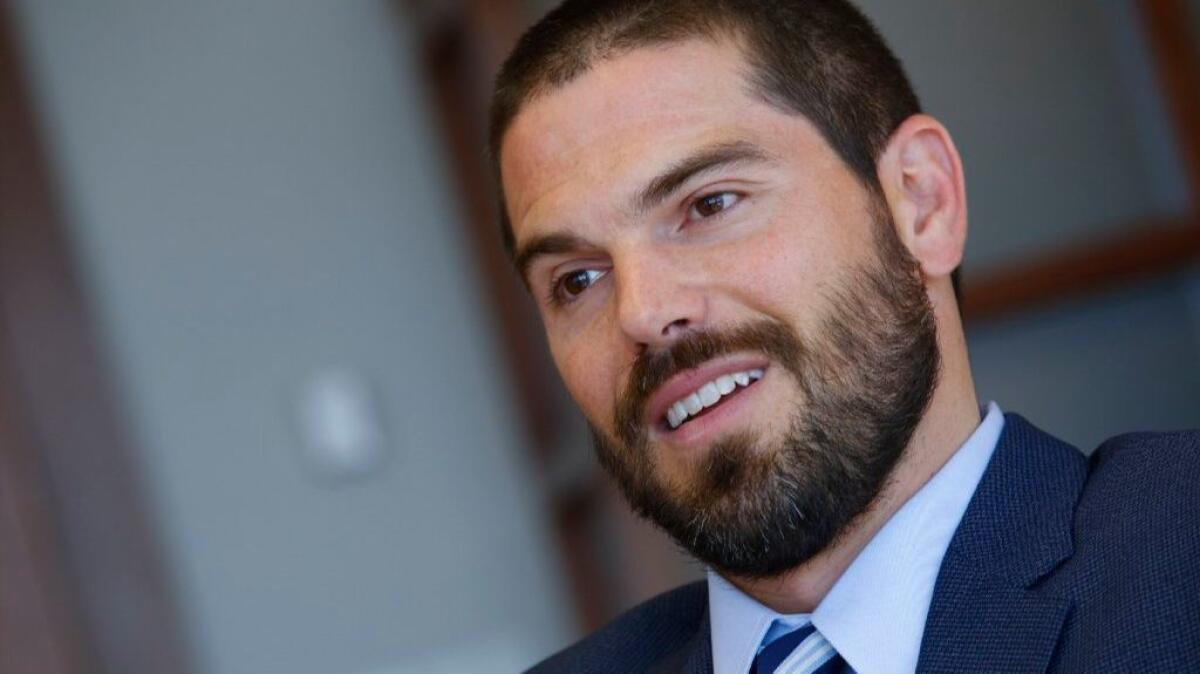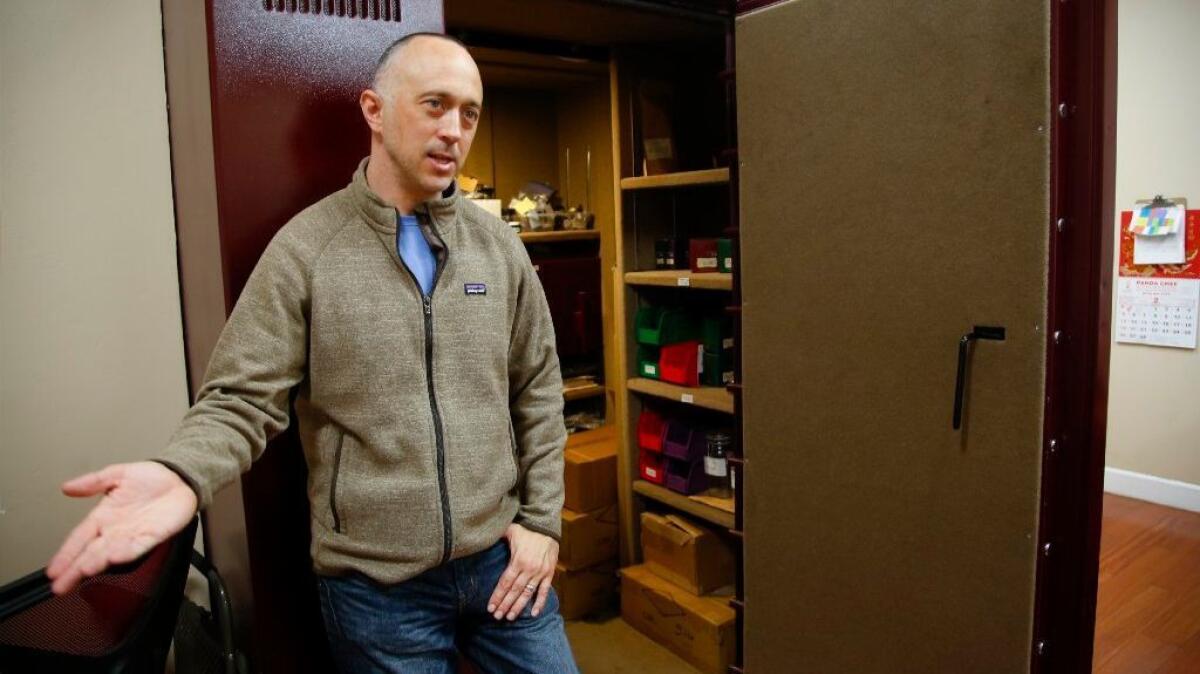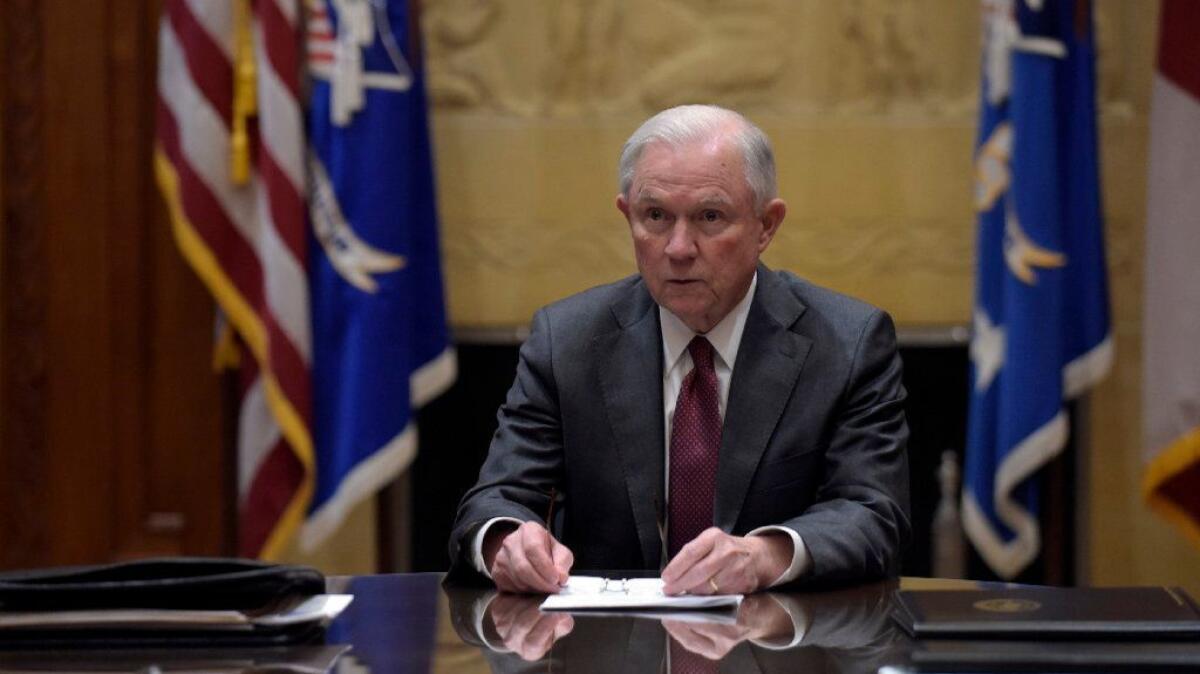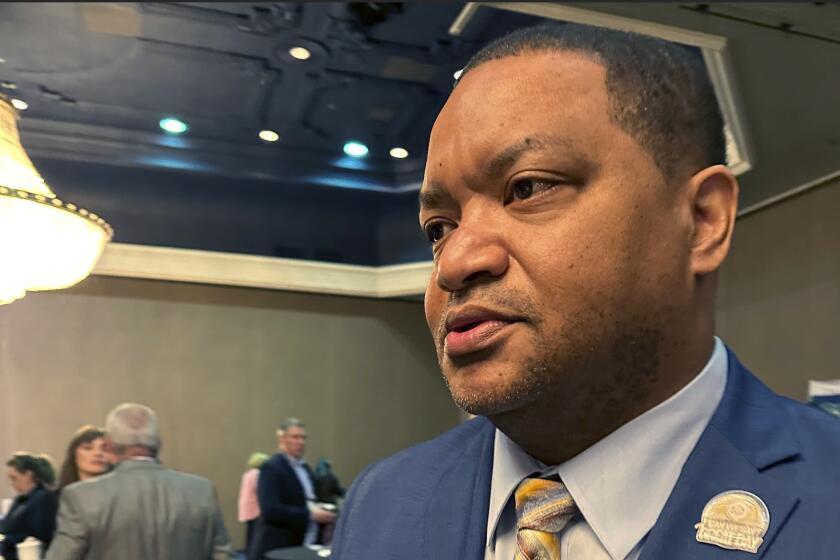Focus: Licensed marijuana businesses operate in the shadows without access to banks
Sometime next year, the most populous state in the nation will let licensed recreational pot sellers start cashing in on a multibillion-dollar industry.
But even though California voters approved these businesses in passing Proposition 64 in November, a major unresolved issue remains that will force a large portion of the state’s legal cannabis community to continue to operate in the shadows: banking.
Because marijuana is still illegal under federal law, it is also illegal for banks to work with any marijuana-related businesses.
While the Obama administration in 2014 issued stringent guidelines that allow banks to serve marijuana-related businesses that are following state laws, most banks have not been willing to risk the lingering threat of criminal prosecution or to spend the resources it takes to comply with the extra rules.
“Bankers have said that in the current environment, with the enforcement and examiners looking at everything bankers are doing, they aren’t really predisposed to take on anything risky,” said Rob Rowe, vice president and associate chief counsel of regulatory compliance for the American Bankers Association. “And banking a marijuana business is risky.”
The medical marijuana industry has grappled with this for years in California and elsewhere. Now, entrepreneurs and conglomerates going after a slice of lucrative recreational pot sales will have to confront the banking challenge.
If you can’t keep your money in the bank, where do you put it? And how do you pay operating expenses, if you can’t write a check?
No banking access means paying employees, bills and taxes in cash. It means no credit or debit card payments from clients. No small business loans or real estate mortgages. No services from mainstream armored car companies that also contract with the federal government. No official records to build credit or establish a financial identity.
And it means a lot of cash — cash that must be stored somewhere and makes marijuana businesses an even greater target for crime.
“They have tens of thousands, if not millions, of dollars,” said Michael Julian, CEO and president of MPS Security, which caters to marijuana-related businesses. “And it’s not as secure in a vault in their establishment, in a closet at home, in their mattress, in the trunk of their car, whatever.”
‘Like a pirate’
Hezekiah Allen, who grew up off-the-grid in rural Humboldt County and tended a small medical marijuana farm in Northern California, hid his cash the same way many cannabis business owners in his situation do.
“I buried everything. I had three different safes buried on a 200-acre parcel,” Allen said. “Fifteen steps from the oak tree, a lot like a pirate. I had a little map. Pretty inconvenient and not the best cash management system.”
And moist earth is not a friend to paper.
“Bankers on the north coast talk about mildewy money. They can tell it’s been buried,” Allen said.
Allen has left his growing operation to serve full time as an advocate for marijuana farmers, and now works to get their profits out of the ground and into banks.
“We don’t want to lie anymore, we don’t want to have to hide what we are doing,” said Allen, executive director of the California Growers Association. “We want to be open and transparent about what we are and want to do. (Banking) is an area where there are some really bad behaviors being reinforced.”
A recent survey by the growers association found 75 percent of its members don’t have a bank account, and the ones who do have had three or more accounts closed in the course of doing business.
A 2015 survey by Marijuana Business Daily of more than 400 cannabis professionals nationwide also found 70 percent of businesses that deal directly in marijuana operate without traditional banking services. As for firms that support the business but don’t handle the plant, 49 percent don’t have bank accounts.
The conflict between banks and the cannabis industry began when California became the first state to legalize medical marijuana in 1996, and it ratcheted up when recreational pot sales started in Colorado and Washington in 2012.
With California entering the recreational market, the banking problem will be magnified.
Massachusetts, Nevada, Maine, Oregon, Alaska and the District of Columbia have also legalized recreational marijuana. Adding in the states that allow medical marijuana brings the total to 28 states, plus D.C., with cannabis laws on the books.
The only real fix to the conflict, experts say, is for Congress to remove marijuana from the list of Schedule I narcotics, putting the drug on par with an FDA-regulated medicine rather than heroin.
Until that happens, state-legal marijuana-related businesses are treated under the letter of the law the same as cartels trafficking methamphetamine. And that makes banks nervous.
Marijuana memos
In 2013, the Obama administration said it would generally not prosecute marijuana businesses that were following state law and didn’t engage in certain activities, such as selling to children, crossing state lines or funding criminal organizations. That guidance is spelled out in what’s called the “Cole Memo,” after then-Deputy Attorney General James Cole.
In a separate memo months later, the administration made it easier for banks to conduct business with state-legal operations with guidelines from the Financial Crimes Enforcement Network, or FinCEN, the federal agency that monitors banks for fraudulent activity, such as money laundering.
But banks were also reminded that marijuana remains illegal under federal law and is subject to prosecution.
Under the guidelines, banks serving marijuana-related businesses are told they must file suspicious activity reports, or SARs, so the transactions are transparent and can be tracked by the government. There are three types of reports: “Marijuana limited” SARs indicate the business is following state law and no red flags suggest it is breaking any other laws; “marijuana priority” indicates the business may not be following other laws and may be involved in suspicious activity; and “marijuana termination” alerts to a bank account that has been shut down for suspicious activity.
The marijuana limited reports are filed when an account is opened and then quarterly after that, listing every single transaction that has been made.
Banks are also told to investigate and track marijuana businesses they are serving, making sure they are what they are and not violating any Cole Memo guidelines.
“This is a level of scrutiny that is far beyond what is expected of any normal banking relationship,” the American Bankers Association said in guidelines posted on its website.
“Because of the standards in place, if we do this we have to have someone almost embedded in the customer 24/7, and we’re not 100 percent certain we saw everything we need to see,” said Rowe of the association. “We’ve got to have such close tabs and use so much resources to closely monitor everything with these businesses, it’s just not economical.”
According to data from FinCEN, some banks have taken on the risk of working with marijuana-related businesses.
In the first six months that the FinCEN guidelines were in effect in 2014, banks nationwide filed 502 suspicious activity reports marked as “marijuana limited,” according to statistics obtained by Dynamic Securities Analytics. During the same period, FinCEN received 123 “marijuana priority” SARs and 475 “marijuana termination.”
Banks keeping quiet
But if banks are knowingly servicing marijuana-related businesses, they aren’t talking about it. Nor are the businesses.
“Bankers will say that we know someone who is (serving a marijuana business), but it is the exception to a general policy, a one-off thing,” Rowe said. “I’ve heard from dispensaries that say we don’t want to call attention to it because we had trouble getting an account and don’t want to lose what we’ve got.”
Two credit unions in Washington state — Salal Credit Union and Numerica Credit Union — appear to be the exception, with dedicated webpages advertising their services to marijuana businesses. Data from FinCEN suggest credit unions are most welcoming to serving the cannabis industry.
The Washington Department of Financial Institutions advised its banks how to go about working with a marijuana business. The recommendations include consulting with an attorney on the risks and benefits, considering the bank’s staffing and expertise in SARs and money laundering, and evaluating whether serving marijuana businesses would harm the bank’s reputation.
Several banks in San Diego County would not say whether they worked with medical marijuana businesses. About a half dozen banks that were called or emailed did not respond to the inquiry or declined to comment, except for one.
California Bank & Trust said in a statement: “CB&T has been monitoring the banking needs of the marijuana industry over the years and, even with the recent changes in California law, there continues to be compliance and administrative requirements that create challenges. We’ll continue to monitor this as the industry starts to mature; both in terms of evolving clarity on banking regulations and also more defined banking needs from the marijuana industry.”
Medical marijuana businesses in the county also didn’t want to talk about their banking practices, afraid of advertising their cash-handling procedures or harming their delicate relationships with banks.
And here’s where the situation gets really touchy.
One way marijuana businesses do manage to secure bank accounts is by setting up limited liability corporations that are management companies providing a list of services, from payroll to accounting to bookkeeping to property management. The money from the marijuana business flows to the company — usually with a nondescript name that doesn’t disclose its ties to marijuana — and is deposited in the company’s bank account.
It’s technically money laundering, and it’s illegal. But some companies have found success with the tactic, while others are being busted by banks and their accounts are promptly closed.

“When you start doing something that looks like money laundering, funneling cash from a nonprofit to something that looks like an LLC, now someone is looking at felony charges,” said Mike Cindrich, an attorney who represents marijuana-related businesses and is executive director of the local chapter of NORML, a marijuana advocacy group. “I sternly advise against it.”
Yet Cindrich sees how marijuana operators feel like they are being backed into a corner by the government. “They’re not leaving the cannabis community with many options here,” he said.
“It’s a complete nightmare for these businesses,” Cindrich continued. “People who don’t want to be legitimate, it’s very easy for them to not report this cash. If we want legitimacy and for these businesses to come out into the light, then we should allow full banking because it allows this money to be accounted for, taxed, tracked, traced. If this is something the feds really want to keep an eye on they’d change the banking laws altogether and make this happen.”
A cash heavy industry
On a recent afternoon, Zach Lazarus showed off the massive walk-in safe installed at A Green Alternative, the medical marijuana dispensary he cofounded in an Otay Mesa shopping center near the Mexican border.
The dispensary is one of 15 granted licenses by the city of San Diego. When the shop was being designed in 2014, the safe was so imposing that it had to go in first so the interior walls could be built around it.
The extreme security measures go further to include a security guard with a metal-detecting wand outside, a locked entry, bulletproof walls and glass, and surveillance cameras.
For Lazarus, the actions have so far kept robbers at bay.

Allen of the growers association said other business owners haven’t been as lucky. “Lots of members have been robbed, been victims of home invasions. The concentration of cash is a sponge for violent crimes.”
That’s where businesses like MPS Security in Murrieta come in. The company offers corporate and executive security, fraud detection and loss prevention. In 2013, CEO and President Michael Julian saw the opportunity to serve cannabis industry, especially in Colorado.
In many cases, good security is a requirement of state or city licensing.
For new clients, Julian will write up a security plan, usually 30 to 40 pages long, that goes over everything from cameras to guards to cash transportation to opening and closing procedures. The plan is tailored to licensing requirements, including whether a city requires an armed guard on site during business hours.
When he started catering to marijuana businesses, he bought two armored vehicles, painting a marijuana leaf on the sides. He soon realized that most businesses appreciated a covert approach for cash transport. Most dispensaries use plainclothes drivers in unmarked cars. MPS’ drivers are often ex-military or ex-police, armed and trained in evasive driving, Julian said.
Most people don’t realize that cash is being handed off.
“It looks like a customer walking in and out,” he said.
Sometimes, he has to convince dispensary owners of their vulnerability.
“It’s kind of foolish and asking for trouble if you have your 23-year-old front desk girl take $25,000 from the store to a closet and you trust her because she’s your niece, but you’re putting the whole family and the girl in jeopardy. … It’s foolish to put employees in harm’s way,” Julian said.
Kristi Kelly, executive director of the Marijuana Industry Group, Colorado’s oldest trade association for licensed cannabis businesses, said many dispensary owners avoid keeping marijuana cash in homes.
“There are people who go to great lengths to vary their routine, who don’t deposit or pick up cash the same day, switch out delivery personnel running the cash, who take specific protective measures to minimize the risk of exposure in the event someone is actually casing them,” Kelly said.
What lies ahead
The cannabis industry has eyed the election of President Donald Trump with suspicion and anxiety, waiting to see if the new administration will address the growing legal marijuana market and how it conflicts with banking laws.
Trump has voiced support for legalization but brought up some concerns about the drug during his campaign. He did not make it a major issue, so the industry doesn’t think it will be as Trump focuses on bigger priorities — terrorism, immigration, the border wall.
Attorney General Jeff Sessions, the Alabama Republican who once said “good people don’t smoke marijuana,” is a bigger worry.
As head of the U.S. Department of Justice, Sessions has control over how the government enforces federal law and could upend the Obama administration’s willingness to look the other way as long as dispensaries followed state law.
Sessions has said he will review the Cole Memo.
He also has said he would commit to “enforcing federal law with respect to marijuana, although the exact balance of enforcement priorities is an ever-changing determination based on the circumstances and the resources available at the time.”

The banking conflict has become a priority for California Treasurer John Chiang, who has convened a Cannabis Banking Working Group made up of representatives from law enforcement, banks, local government, regulators and taxing authorities to find solutions.
A possible fix for California’s banking troubles is to create a state-run bank for the cannabis industry. But even state banks need permission from the federal government.
Colorado’s attempt to create a state bank for the marijuana industry failed when the Federal Reserve refused to sign off on the plan. The state had chosen a credit union that would follow the stringent rules required of marijuana businesses, but the Fed said in a court filing that it wouldn’t act because the drug is illegal under federal law. The case was argued on appeal in November to the 10th U.S. Circuit Court of Appeals, and an opinion is forthcoming.
Rowe, of the banking association, said states have been pressuring Congress as the huge revenues from the marijuana business become apparent.
“We may be at a tipping point,” Rowe said.
Colorado industry advocate Kelly said it has taken time for banks in her state to get comfortable with the idea of legal marijuana, and perhaps that will also happen in California and spread to other states.
“California has a greater appetite for progressive thinking than other places,” she said.
Correction
An earlier version of this story incorrectly said cocaine, like marijuana, was a Schedule I drug. It is a Schedule II drug.
kristina.davis@sduniontribune.com
Twitter: @kristinadavis
Get U-T Business in your inbox on Mondays
Get ready for your week with the week’s top business stories from San Diego and California, in your inbox Monday mornings.
You may occasionally receive promotional content from the San Diego Union-Tribune.





